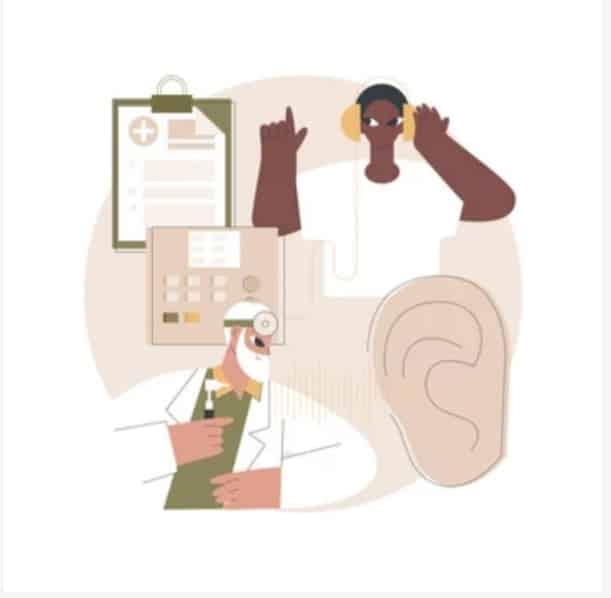It’s been estimated that about 30 million people in the United States age 12 and older suffer from hearing loss in both ears, according to the National Institute on Deafness and Other Communication Disorders (NIDCD). Additionally, about 15 percent of adults age 18 and over, report issues with hearing, ranging from moderate to severe.
It’s a difficult adjustment when you begin to notice your hearing is failing, and this can cause depression and anxiety in many men and women who suffer from hearing loss.
In addition, hearing loss can be caused by a variety of factors, with one of the most common being loud noises. In fact, veterans who were issued 3M earplugs during the global “war on terror” have reported significant hearing loss, and many are filing lawsuits for hearing loss due to 3M earplugs.
Hearing loss is also grouped into 3 distinct categories, and here we’ll explore each of these.
Sensorineural Hearing Loss
The human ear contains three essential parts, the outer, middle, and inner ear. Sensorineural hearing loss occurs when there is damage to the inner ear, and this can be caused by a variety of factors.
Sensorineural hearing loss or SNHL is the most common type of permanent hearing loss and is often identified by difficulty hearing soft or loud noises. Some of the primary causes of SNHL are as follows:
- Repeated illnesses affecting the inner ear
- Loud noises and explosions
- Age
- Hereditary reasons
- Head trauma
- Abnormal shape of the inner ear
Unfortunately, most often SNHL is permanent and may not be able to be corrected with medications, invasive surgery, or any type of self-care routine.
Conductive Hearing Loss
Conductive hearing loss is identifiable by a difficulty to hear soft sounds, and when loud sounds can be described as “muffled.” Fortunately, surgery and medications can reverse the effects of conductive hearing loss.
Conductive hearing loss happens when sound is unable to pass through the outer and middle ear and this has been known to be caused by inner ear infections, excessive fluid buildup and a host of other causes.
The following conditions can cause conductive hearing loss:
- Eustachian tube abnormality
- Hole in eardrum
- Buildup of earwax
- Objects lodged in the ear
- Tumors
- Severe colds and allergies
Some sufferers of conductive hearing loss have turned to holistic therapies as well, by using such remedies as topical CBD and by practicing balancing exercises, some sufferers have reported to alleviate pain associated with conductive hearing loss.
Combination Hearing Loss
Sometimes two or more conditions occur that can cause both SNHL and conductive hearing loss. When this happens, your hearing can be dramatically affected, and this is also often associated with pain and balance issues.
For example, you could have developed SNHL by working around loud machinery for a period of several years, or if you spent significant time in military service being subjected to explosions and gunfire. In addition, if you also have severe allergies or are prone to developing chronic cold symptoms, both the inner and middle ear may be affected.
Additionally, a combination or “mixed” hearing loss can also occur when there is damage along the nerve pathway from the ear to the brain.
Combination hearing loss weakens your hearing significantly, much more than if you only suffered from one ailment and needs to be treated by a physician. Often this type of hearing loss is irreparable, but some relief can come in the form of hearing aids and with advancements in digital hearing devices.
Hearing loss is no laughing matter, and this is a condition that needs to be diagnosed immediately in order for proper medications and therapies to be prescribed.
Going for too long with hearing issues can lead to ruptured ear drums, and permanent pain in the inner ear that is known to cause fatigue and depression in some of the more severe cases. If you begin to notice any loss of hearing or a persistent ringing in your ears, get your hearing checked by your regular doctor immediately.






1 Comment
Hello, you have written a good article your article is very useful and informative. Our website is a http://www.Popularhospital.in where is the best Neurologist doctor, ENT specialist doctor, pharmacy department and blood bank are also available. For more information visit our website.